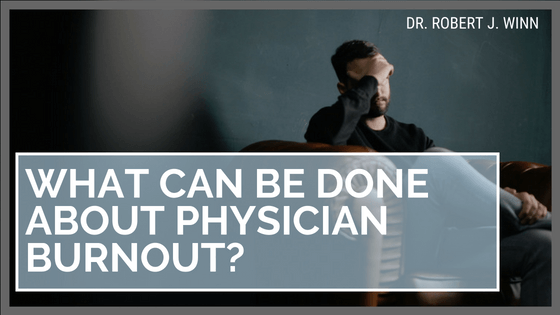Today’s physicians are expected to juggle more tasks, stay aware of constant changes to government and insurance regulations, and spend more time with patients than ever before. This increased amount of responsibilities leads to higher levels of stress, which in turn leads to burnout.
More than half of the physicians in the United States are experiencing burnout. 1 in 10 physicians have said they’ve made a major medical mistake in the past three months, and most attributed it to burnout.
Burnout is a long-term stress condition characterized by emotional exhaustion, depersonalization and cynicism. Physicians experiencing burnout may not feel as strongly about their work, causing them to make more mistakes. Burnout can also lead to drug addiction and suicide.
In a 2017 survey, physicians from 27 specialties ranked their burnout from one to seven, one meaning burnout doesn’t interfere with their life and seven meaning they’ve thought about leaving medicine because of it. Out of those 27 specialties, all but one selected four or higher. Physicians in emergency medicine are the most affected specialty.
Burnout is hard to diagnose and hard to treat, partly because of the stigma attached to it. Many physicians don’t want to admit to experiencing burnout as it makes them feel like bad doctors.
One of the biggest ways to combat physician burnout is to be honest. Don’t let your fear hold you back from getting the help you need. Speak to your coworkers and be honest about your struggles. Make an appointment with a mental health professional and talk to them about your concerns.
Another treatment for burnout is prioritizing yourself. Medicine is a career that is focused on helping others. Apply that same attitude to yourself. Find ways to relieve some of the stress that you feel. Whether that’s delegating tasks that don’t require medical degrees to your team of nurses, limiting your hours spent at work, make changes that will make your job less stressful.
Create a clear boundary between your work life and your home life. When you come home from work, leave your stress from work at the door. You can’t recharge when you’re still being drained by stress from work. Develop a boundary ritual that you perform every day when you get home that will help you mentally separate work from home, whether that’s changing your clothes or walking your dog.
Fighting burnout is an uphill battle, but one physicians need to continue to fight in order to continue offering quality care to all of their patients.


